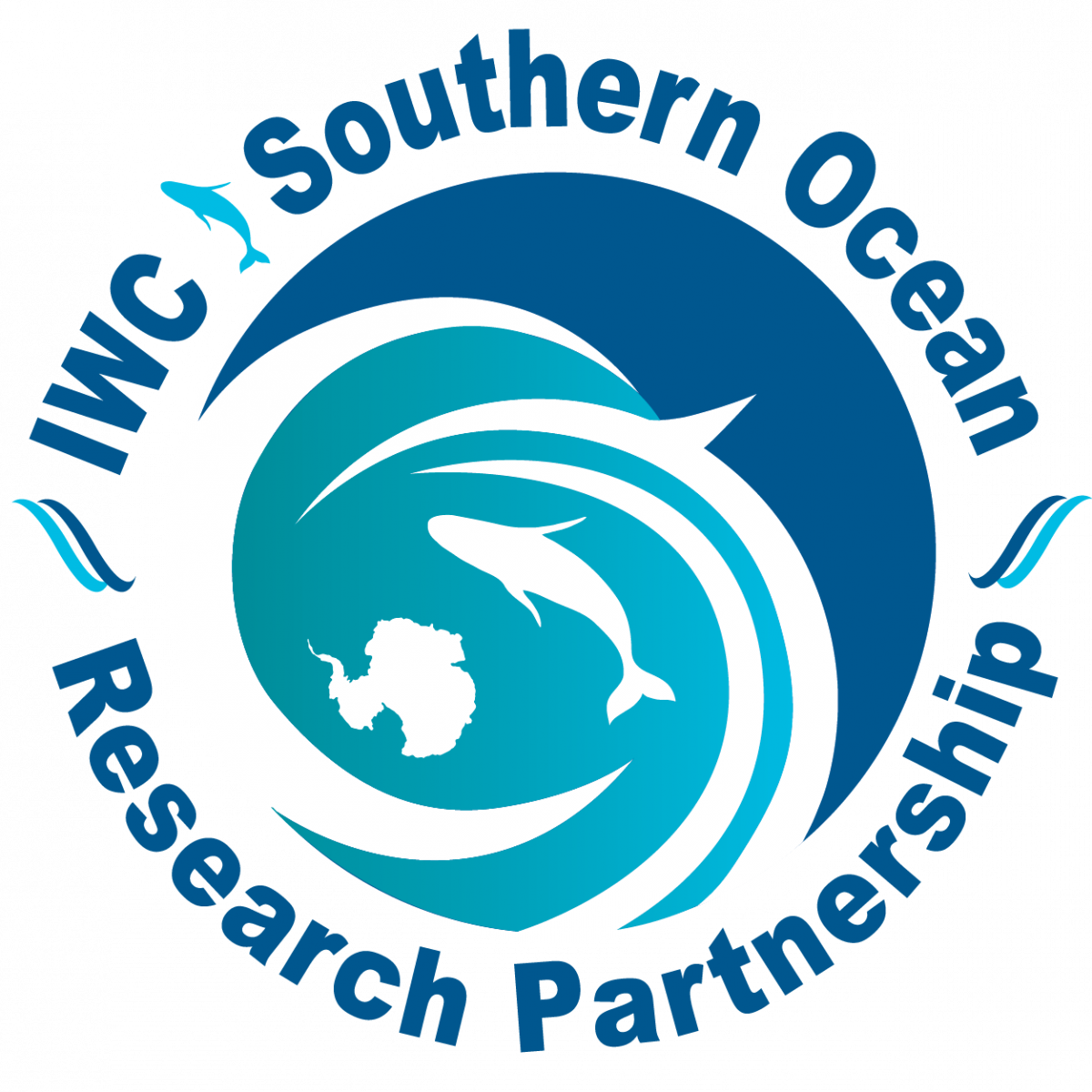 The IWC Southern Ocean Research Partnership (IWC-SORP) was established in 2009 as an integrated, collaborative consortium for cetacean research, which aims to maximise conservation-orientated outcomes for Southern Ocean cetaceans through an understanding of the post-exploitation status, health, dynamics and environmental linkages of their populations, and the threats they face.
The IWC Southern Ocean Research Partnership (IWC-SORP) was established in 2009 as an integrated, collaborative consortium for cetacean research, which aims to maximise conservation-orientated outcomes for Southern Ocean cetaceans through an understanding of the post-exploitation status, health, dynamics and environmental linkages of their populations, and the threats they face.
IWC-SORP currently focuses on the large whale species managed by the IWC: Antarctic blue whale, humpback whale, fin whale, Antarctic minke whale and southern right whale. Killer whales are also considered as an important component of the Southern Ocean ecosystem.
The regional focus of IWC-SORP is the Southern Ocean but relevant research efforts also include migratory corridors and breeding grounds.
There are seven on-going IWC-SORP research themes:
- The Antarctic Blue Whale Project (ABWP): towards an improved circumpolar abundance estimate;
- Distribution, relative abundance, migration patterns and foraging ecology of three ecotypes of killer whales in the Southern Ocean;
- Foraging ecology and predator-prey interactions between baleen whales and krill: a multi-scale comparative study across Antarctic regions;
- Acoustic trends in abundance, distribution, and seasonal presence of Antarctic blue whales and fin whales in the Southern Ocean;
- What is the distribution and extent of mixing of Southern Hemisphere humpback whale populations around Antarctica?
- The right sentinel for climate change: linking foraging ground variability to population recovery in the southern right whale.
- Recovery status and ecology of Southern Hemisphere fin whales.
Scientists participating in IWC-SORP are developing and applying novel, powerful, conservation-oriented research methods including acoustic techniques, tagging devices, photography and satellite tracking methods, tissue sampling and sophisticated genetic techniques, as well as important ecological theory and analyses.
The Partnership currently includes 13 countries: Argentina, Australia, Belgium, Brazil, Chile, France, Germany, Italy, Luxembourg, New Zealand, Norway, South Africa and the United States of America.
IWC-SORP warmly welcomes new partners to formally commit to participation in this exciting initiative.
Applications can only be accepted via the online platform. All information for the 2024 Call for Proposals can be found here.
The closing date for receiving project proposals is midnight UTC, Thursday 29 February 2024.
Whale photo-identification guide
Reference placards describing photo-identification features for large whales have been developed for distribution to naturalists and citizen scientists in the South Georgia/las islas Georgias del Sur and Antarctic Peninsula region. Sightings will be incorporated into a global, web-based photo-identification platform. Photographers will be informed of matches made from contributed images, and images will be forwarded on to relevant regional catalogue curators.
- Click here for a print-version of the Whale Photo-Identification Guide and here for an electronic version.
- Click here to see how the photographs submitted are processed and used by scientists.
The Whale Photo-Identification Guide was developed by Taylor JKD, Olson PA, Fitzpatrick J, Minton G and Jackson JA, with funding provided by IWC-SORP.
Southern right whale data request
We are searching for contributions of all readily available information on southern right whale offshore sightings south of 40°S over the period 1980 – 2020.
Data requested would ideally include the following:
- Date
- Coordinates (Latitude/Longitude)
- Number of southern right whales observed
- Evidence available (photo, video, acoustics, trained observer, …)
- Behaviour (if known and confirmed)
A key part of IWC-SORP research Theme 6 is the identification of southern right whale foraging grounds. However, contemporary data on feeding ground locations are sparse and consequently the identification of areas of importance to the species is difficult. Therefore, the project-leaders are pursuing a comprehensive desktop study to collate all available (published and unpublished, dedicated or opportunistic) data regarding southern right whale offshore sightings South of 40°S. Such information will be essential to further develop foraging ground habitat models and select appropriate environmental variables, to evaluate effects of climatic changes on the species’ foraging success and ultimately reproductive success.
IP rights of all contributed data will remain with the data owner.
During this initial phase the metadata will only be tabulated. Further data analyses and processing will not occur without the written consent of the respective data owners. The final table of collated data will be made publicly available on the IWC website, unless specifically requested otherwise by the data owner. If required, data sharing agreements can be put in place on a case-by-case basis.
- To contribute data or for more information, please contact Els Vermeulen (els.vermeulen@up.ac.za) and Emma Carroll (e.carroll@auckland.ac.nz)
